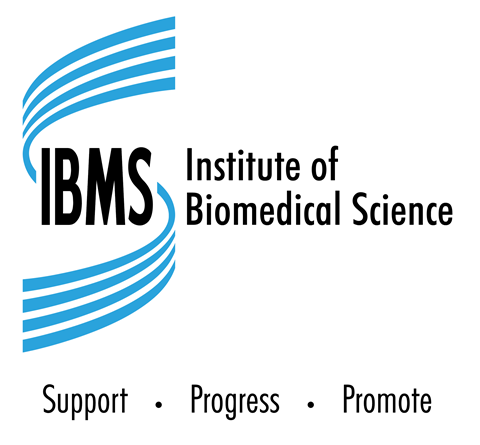With over 21,000 members in 74 countries, the Institute of Biomedical Science (IBMS) is the leading professional body for scientists, support staff and students in the field of biomedical science.
For over 100 years we have been dedicated to the promotion, development and delivery of excellence in biomedical science within all aspects of healthcare, and to providing the highest standards of service to patients and the public.
What do biomedical scientists do?
Working in healthcare laboratories, biomedical scientists conduct over 1 billion diagnostic tests in the UK each year. Their results provide the basis of over 75% of diagnoses in the NHS.
What do you study on a biomedical science degree?
IBMS Accredited biomedical science degree courses include all the key clinical laboratory specialities: medical microbiology (including virology), clinical biochemistry, haematology and transfusion science, clinical immunology, cellular pathology/histopathology and clinical genetics.
Where can I study a biomedical science degree?
If you want to become a biomedical scientist, IBMS Accredited degrees are the quickest way to get HCPC registration and join the profession. In the UK, there are 56 universities that currently have IBMS Accredited biomedical science BSc degrees. Studying an IBMS Accredited BSc biomedical science degree with a placement in a healthcare laboratory offers the quickest route to register and work as a biomedical scientist.
Who can become a biomedical scientist?
To work as a biomedical scientist in the UK you are legally required to register with the Health and Care Professions Council (HCPC). To register as a biomedical scientist with the HCPC, you must meet their Standards of Education and Training . This requires you to complete an IBMS Accredited biomedical science degree or apprenticeship (or HCPC approved Healthcare Science/Life Sciences degree) and successfully complete the IBMS Registration Training Portfolio in an IBMS approved training laboratory.
What do I do if my degree isn’t IBMS accredited?
If you have not completed an IBMS-accredited biomedical science degree or apprenticeship, or HCPC-approved Healthcare Science (Life Sciences) degree, you will need to request an IBMS degree assessment for your non-accredited degree. This will identify if you need to undertake additional education (sometimes called top-up modules) to meet the HCPC Standards of Education and Training. You will also be required to successfully complete the IBMS Registration Training Portfolio and be awarded the IBMS Certificate of Competence, which will then enable you to register with the HCPC as a biomedical scientist.
Once you are HCPC registered as a biomedical scientist, you can apply for roles with the legally protected title.








No comments yet